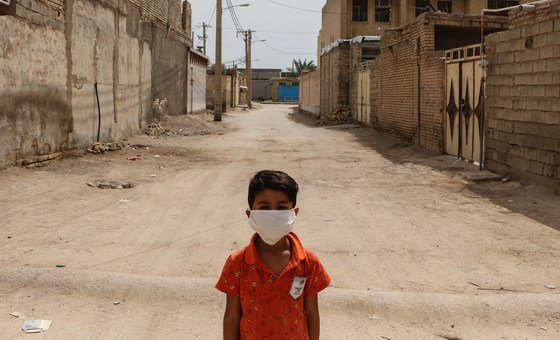The UN human rights office, OHCHR, called on Tuesday for the immediate release of thousands of Iranian citizens who have been detained after peacefully demonstrating against the Government following the death of Mahsa Amini for breaking strict hijab rules two months ago.
OHCHR Spokesperson Jeremy Laurence, briefed reporters in Geneva, reporting that on 8 November, Iran’s prosecutor had said more than 1,000 indictments had been issued to protesters in Tehran province alone, with hundreds of others outside the capital.
Immediate release
“We urge the authorities to immediately release all those detained in connection to peaceful protests, and to drop the charges against them. Human rights law protects the rights of people to peaceful assembly and to freedom of expression”, he said.
He said rather than choosing dialogue to air legitimate grievances, the authorities were responding to the unprecedented protests sparked by Ms. Amini’s death in police custody, “with increasing harshness.”
Death sentences
And on Sunday, recriminations reached a new level with the first sentencing to death of a protester by an Islamic Revolutionary Court in Tehran, which found the unnamed defendant guilty of moharebeh or “waging war against God” and efsad-e fel-arz or “corruption on earth” for allegedly damaging public property.
At least nine other protesters have been charged with offences that carry the death penalty, said OHCHR.
Under international law, countries that have not yet abolished the death penalty can only impose it for the “most serious crimes”, which is interpreted as crimes of extreme gravity, involving intentional killing, Mr. Laurence reminded.
Disproportionate
“Crimes not resulting directly and intentionally in death can never serve as the basis for the imposition of the death penalty”, he added.
According to news reports, the protests have spread to at least 140 towns and cities, and over 300 have been killed during the violent crackdown, including more than 40 children and two dozen women.
The OHCHR Spokesperson called on Iran “to immediately impose a moratorium on the death penalty, to refrain from charging capital crimes, and to revoke death sentences issued for crimes not qualifying as the most serious crimes.”

